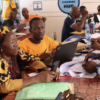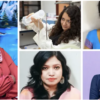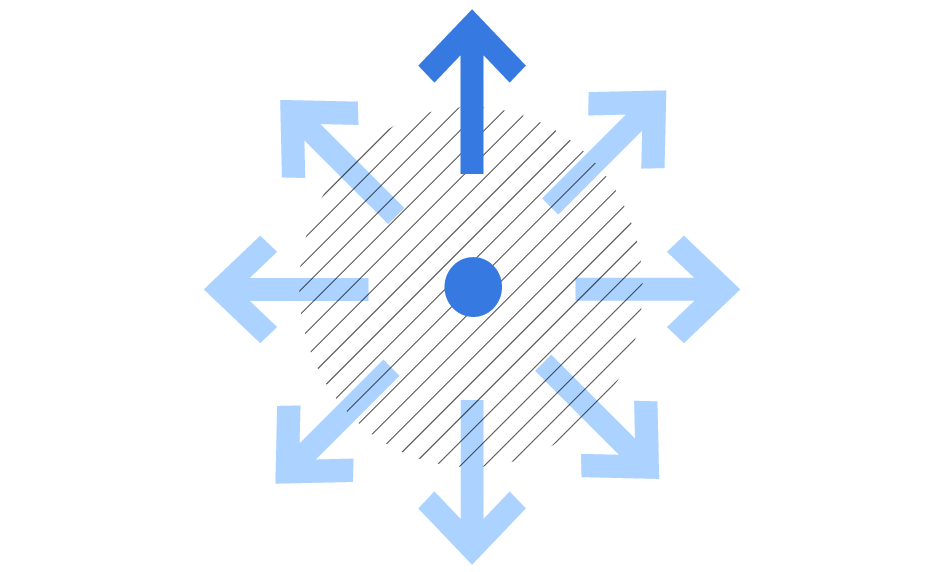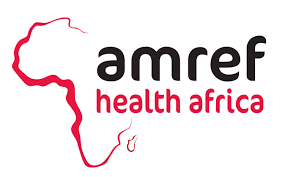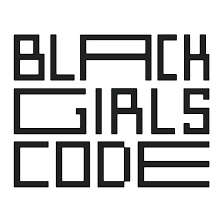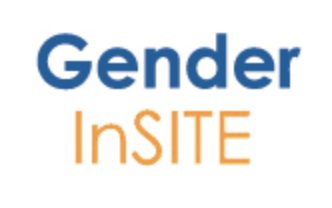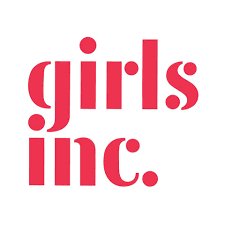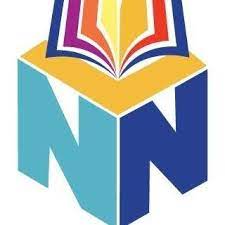New Scholars Grants
| 2015 | 2014 | 2013 | 2012 | 2011 |
| 2010 | 2009 | 2008 | 2007 | 2006 |
2015
Motivating Enrolment of Women into STEM Majors
La Guardia Community College
Gender and Science Advocacy
SciDev.net
Awards for Developing Women Scientists
TWAS and OWSD
Travel grants for Women Scientists
Gender Summit and the 17th International Conference for Infectious Disease
Native Language Science Outreach for Underserved Youth in London
Native Scientists
Science & Health Outreach for Urban Children
Amsterdam IMC Weekend School
2014
Career Building Workshops for STEM Women Scientists
Engineering School of Communications of Tunis
The advancement of women in science presents a significant opportunity to develop science in countries around the world. Based in Tunisia, this program is designed to provide early career women scientists with training in neglected career-building topics which are critical for career advancement. Partnering with the US COACh program, the Engineering school of communications in Tunis will provide 240 women scientists across Tunisia with six-day workshops offering training in grantsmanship, publication in quality journals, leadership skills, persuasive negotiation, communication techniques, scientific presentation design and delivery, career launch and advancement, self-promotion and mentoring for success and network building. The goal of the project is to enable Tunisian women scientists to acquire the skills, knowledge, techniques, and attitudes they need to successfully navigate their careers. It also provides a relevant bridge between COACh, a multifaceted and tested US career-training model, and the North African context.
Sustainability and Water Resource Management in the Tropics
University of Florida, University of Hawaii-Manoa, American Society for Microbiology
This grant will craft a blueprint for developing outstanding female scientific leaders in the fields of sustainable agriculture and water management. The current lack of senior female scientists and decision makers in sustainability projects often provides an implementation risk as key project stakeholders, especially in the tropics, tend to be women. “Tropical Connections” addresses the urgent need to develop a framework for fostering the careers of women scientists with a solid foundation in agricultural sustainability and water resource management. The University of Hawaii-Manoa, the University of Florida and the Southeastern Branch of the American Society for Microbiology will establish a career development path for 20 post-doctoral international and minority female scientists who will undergo a rigorous preparation for tenure track and leadership roles.
West Virginia STEM+ Family Travel Initiative
West Virginia University Foundation on Behalf of West Virginia University
The primary goal of the West Virginia STEM+ Family Travel Initiative is to reduce caregiving barriers to research-related travel by establishing sustainable, state wide solutions for female faculty with family responsibilities. The program is unique in its centralized, state-sponsored approach and targets over 700 female postdoctoral scholars in STEM and the social sciences across 22 West Virginia colleges and universities. The program will be administered by the West Virginia Higher Education Policy Commission and the project team will research institutional policy to develop a travel grant program which can serve as a national model covering childcare, dependent care, elder care and special needs. The program builds on the strengths of past New Scholars grants from Rensselaer Polytechnic Institute, the University of Massachusetts, the Association for Women in Science (AWIS) and the American Physical Society to provide a solid caregiving infrastructure serving as a one stop shop for women faculty. The West Virginia STEM+ Family Travel Initiative’s focus on researching policy change is unique and with proper dissemination, there is the opportunity for a strong multiplier effect across the US.
American Association of Physical Anthropologists (AAPA) Women’s Initiative
Women physical anthropologists, like most other STEM women scholars and researchers, experience a significant early career bottleneck in the transition from graduate programs to tenure. This professional association-led program aims to create a self-sustaining career-development infrastructure through workshops and associated travel and childcare grants. This program will reach out to national members through workshops held at the annual AAPA conference and at Duke University and the University of Colorado Boulder, and to international members at the University of Cape Town in South Africa, and Durham University in the United Kingdom. The project will also build transferable online tools and webinars in partnership with the Association for Women in Science, a longstanding Elsevier Foundation partner. The AAPA’s Committee on Diversity Women’s Initiative, co-Chaired by Robin Bernstein (University of Colorado) and Andrea Taylor (Duke University), piloted a workshop in 2014 that demonstrated a successful proof-of-concept ready for scaling.
2013
Strengthening Team Science & Work Life Satisfaction in the UC System
University of California Santa Barbara
Collaborative, interdisciplinary team science-based research has become increasingly central in scientific discovery. Team science garners more funding, more impactful research and publications. Having a strong network of collaborators and mentors is critical to a productive and successful academic career, yet women are both less likely to participate in team science and to do so later in their careers. The UC Team Science Retreat will address these disparities among early- to mid-career STEM women scientists across the 10 campuses of the University of California (UC) system through a three year series of retreats on team science leadership, research design, and proposal writing. Held in collaboration with UC Merced and UC Office of the President, the retreats will accommodate child care and include male researchers, fostering a climate of family-friendly inclusion while science leadership skills, experience and productivity are gained earlier on in careers. The retreats provide the first comprehensive training in the country for this core competency. Sixty participants will be tracked and supported throughout and joint investment will be made by participating institutions. The UC Team Science retreat promises to deliver new knowledge regarding the relative importance of team science and how diverse points of view inform research, innovation and the public support of science, bringing scientific questions and research more in line with social needs and benefits.
African Network of Portuguese speaking women in Tropical Health
Institute of Hygiene and Tropical Medicine, Portugal
This project will improve tropical health career development for women scientists in five African Portuguese speaking countries: Mozambique, Angola, Cape Verde, Guinea, St. Tome and Principe. With a focus on improving integration into the wider scientific community, the project will be led by the Institute of Hygiene and Tropical Medicine (IHMT), in Lisbon, to develop a critical mass of African women scientists and connect them with mentoring Portuguese academics and the European Platform of Women Scientists. In addition, relevant transferable skills will be offered through distance learning, an in person workshop will be held in each country, a dedicated mobile phone-accessible website and expertise driven database will be developed and childcare grants offered to promote professional visibility. The network proposed here will be the first to include African Portuguese speaking countries, and in an area of research—Tropical Health– that is particularly relevant to many low and middle income countries. The project addresses the geographic and linguistic isolation of these women scientists and shows great potential as a model for international collaboration, particularly in an area of significant health concern.
Cambridge Equality Collaboration: Advancing Women in Science within & beyond Cambridge
University of Cambridge
The Cambridge Equality Collaborations (C=C) project aims to develop a comprehensive approach to the advancement of women in STEM, aligning the university’s many existing initiatives into an integrated program with lasting potential. Over a three year period, primary research investigating the transition from early career researcher to tenure will be conducted as well as resources developed through the expansion of a leadership development programme; high impact opportunities for the professional and personal development of women in STEM; local and national events to develop a support network for parents and carers; collaboration with previous New Scholars grant recipients (Portia and the National Postdoctoral Association); and profiling visible women role models, including delivery of a prestigious annual event and wide dissemination of book/web/virtual resources celebrating women of Cambridge.
Motivating Enrollment of Women into STEM Majors
LaGuardia Community College
The first two years of a college career are considered a key predictor for students to major in STEM fields. This project targets women in community colleges, an overlooked demographic providing critical STEM career entry points to students—especially women students—of lower socioeconomic status. LaGuardia Community College (LGCC) has a student population that is 58% female—out of which less than 5% graduate with a STEM degree. Of these students, 81.4% report household income of less than $25,000. Within two year colleges in particular, the shortage of affordable child care services and common gender stereotypes discourage women from pursuing careers in STEM. This project is open to all City University of New York community college students and will implement a series of workshops, research internships, assistance for scholarships and childcare to encourage women to pursue careers in STEM. Program data will be analysed and submitted for publication, forming the foundation for a subsequent full grant application to a key NSF program directed at community colleges. For the New Scholars program, this proposal represents a new space—or segment in the academic pipeline.
Women IS Network
Worcester Polytechnic University
Information Systems, a field of great societal and industry importance, is suffering from an ever diminishing proportion of women as well as a lack of awareness of this gender inequality as a growing problem. The Information System Women’s Network (ISWN) supported by Worcester Polytechnic Institute has four goals: to collect global data on what women in IS academia need to flourish in their careers; to provide an outlet for current research on women in IS; to grow awareness, membership and visibility within the international IS community and to establish a successful self-supported workshop format sponsored by academic and industrial sponsors. This is an interesting, and potentially high impact approach to a global issue in information systems and presents a clear plan to address the issue in a safe context for women in this area.
2012
The National Postdoc-Societies Collaboration to Boost Retention of Women Scientists
National Postdoctoral Association
The postdoctoral training period represents a critical transition point in the academic pipeline where the numbers of women scientists and engineers decline significantly. While the relative number of women decreases at every step along a research career path, the heaviest attrition occurs before tenure track and in the fields with the largest numbers of postdocs. Through a grant from the Elsevier Foundation, the National Postdoctoral Association (NPA) will tackle this loss of talent through a targeted collaboration with scientific societies to produce a postdoc guidebook for navigating the academic pipeline. The NPA is a non-profit with an excellent track record of enhancing the quality of the postdoc experience and thereby maximizing the effectiveness of the research community.
National Assessments in Gender and Science, Technology and Innovation in Latin America
WISAT
The Gender Equality Knowledge Society (GEKS) indicator framework was developed after studies showed that women, particularly in the developing world, continue to be on the wrong side of the digital and innovation divides. Women generally experience lower levels of access to information and technology, and are poorly represented in education, entrepreneurship and employment in Science, Technology and Innovation (STI). Gaps in women’s access to resources, opportunities, rights, education, financing, as well as S&T, greatly diminish the potential of a country to achieve progress, reduce poverty, and improve the overall quality of life. This Elsevier Foundation grant follows a 2010 gender-benchmarking grant supporting the assessment of five countries with highly accelerated growth in the research arena: South Korea, India, Brazil, Indonesia and South Africa. The new gender benchmarking studies will provide a Latin American regional focus covering: Argentina, Chile and Mexico.
The Appalachian Women Scientists program
Appalachian State University
Women scientists often choose to work at smaller institutions because they consider these institutions more family-friendly. However, while they may enjoy better work-life balance, they also have heavier teaching loads, smaller salaries, less internal funding for professional travel and early-career research; weaker on-campus research laboratories, computing and administrative infrastructure. Institutions with fewer faculty members also offer fewer mentors and role models for women scientists, fewer potential collaborators for scientists in highly-specialized fields, and less peer support for early-career scientists who may be the only women (and/or mothers) within their departments. By providing low cost financial, mentoring, and social support for these women scientists and documenting the return on investment in terms of promotion, tenure attainment, retention, and research productivity. Through a grant from the Elsevier Foundation, the Appalachian Women Scientists program will help ensure that women scientists can choose to work at a smaller institution for work-life balance reasons without stunting their research careers.
The Elsevier Foundation Awards for Early Career Women Scientists in the Developing World
TWAS and OWSD
A grant from the Elsevier Foundation has ensured that an awards program for the recognition of women scientists in the developing world is feasible through 2015. In partnership with TWAS, the academy of sciences for the developing world, (TWAS) and the Organization for Women for Science in the Developing World (OWSD ), the awards provide a deep focus on discipline and professional visibility. The five region-specific annual prizes will rotate between life sciences (2013), chemistry and physics/math and provide professional exposure at the annual American Association for the Advancement of Science (AAAS) conference in February. Nominations are accepted from early career scientists (within ten years of graduating with a PhD degree) from the 81 countries with low scientific output as defined by TWAS . They will be reviewed by a committee of distinguished life scientists chaired by OWSD president, Prof. Fang Xin. The 2013 award winners will receive their awards at the annual AAAS, Gender and Minorities Networking Event in Boston in February 2013.
2011
Scenario Toolkit for Advancing Careers in Science
Portia Ltd (EU)
The European Commission’s recent public consultation on strengthening the role of women in science yielded professional development feedback: the need for career models and pathways; balancing career aspirations and family responsibilities; childcare issues and costs, mobility, dual career couples, and returning after career breaks. The Scenario Toolkit for Advancing Careers in Science targets this call to action to help European women scientists navigate the complex relationships between events and decisions that shape a scientist’s professional development through the doctoral and postdoc stages. Portia , a UK-based non-profit, will pilot the scenario method through workshops delivered with two partners; the Technical University Berlin and Tel Aviv University. Portia’s scenario toolkit moves beyond traditional mentorship to provide an innovative new strategy for improving the career success of female scientists and engineers.
STEM CIC Writing Retreat
University of Nebraska, University of Nebraska-Lincoln, US
With a grant from the Elsevier Foundation, the University of Nebraska aims to retain women scientists by improving research productivity and promoting critical networks through a model STEM writing retreat. A week-long, multi-disciplinary, multi-rank writing retreat at the University of Nebraska (UNL) will be offered to STEM faculty across the “Big 10” universities. With a concerted focus on writing success and social connections, this program has the potential to serve as a model that can be easily replicated across institutions and disciplines to help retain STEM women in academia.
Get Ahead with Optics: Career Development for Women in Science
University of Carthage, Engineering School of Communications, Tunisia
Over the last years, optics research has become an indispensable part of daily life. Fiber optics for telecoms, medical imaging and cancer research, optical parts in cars, computer and 3D screens are at the core of the world’s technical infrastructure. This interdisciplinary proposal from Tunisia aims to orient young women scientists in the dynamic and rapidly evolving field of optics and photonics while providing them with professional development skills and a deeper understanding of what is needed to succeed as a woman scientist. The ten day summer school in optics is a partnership between the University of Carthage’s Engineering School of Communications , Tunisia and Philipps University from Marburg, Germany and offers recent Tunisian and German graduate students with scientific orientation, career coaching and international exchange to lay the groundwork for a successful scientific career.
Rethinking the Future of the STEM Workforce: Best Practices in Work-Life Effectiveness
Association of Women in Science, US
While women comprise roughly half the US work force, they hold just 24% of STEM jobs according the Department of Commerce. Whether the root causes lie in a lack of female role models, gender stereotyping, or a lack of family friendly flexibility, the resulting attrition in the academic pipeline means that the US is halving its potential for innovation. The Elsevier Foundation New Scholars program has focused on the holistic, work-life dimension of the STEM workplace including dependent care, dual career relationships, mentoring and travel to professional meetings. The Association of Women in Science (AWIS) will collaborate with the New Scholars program to leverage best practice testimony to impel systemic change in the global STEM workplace. Through an international work-life satisfaction survey and a New Scholars Roundtable, AWIS aims distill recommendations into a report that will serve as an action plan to help employers, working women, and policymakers identify, create and sustain systemic changes.
2010
2010 OWSD Women Scientists in the Developing World Awards
An Elsevier Foundation New Scholars 2010 grant has enabled the continued support of twelve regional and discipline-specific prizes for the Organization for Women in Science for the Developing World (OWSD). The OWSD Young Women Scientists in Developing Countries awards will be awarded to a young woman scientist in each of the four regions of the developing world (Africa, Latin America and the Caribbean, and the Middle East) to a total of three $5,000 prizes per region in biological sciences, chemical sciences, and the physical and mathematical sciences. The expanded prizes will ensure that talented young women scientists in developing countries are recognized for excellence within their own disciplines and help to promote the overall participation and recognition of women scientists in the developing world.
OWSD National Assessments on Gender, Science Technology and Innovation
A 2010 Elsevier Foundation Grant has made it feasible for the OWSD to undertake a five country assessment of emerging and developing countries offering new and valuable data on the participation of women in Science, Technology and Innovation (STI) for countries with highly accelerated growth in the research arena. In addition to South Korea, India, Brazil, Indonesia, South Africa, existing qualitative and quantitative research from the US and EU will be compared. The results should offer significant value to build program to improve status, shift policy and develop new programs based on real data and statistics.
2009
Women Scientists in the Developing World Awards
Third World Organization for Women in Science (TWOWS)
This Elsevier Foundation grant will enable the expansion of TWOWS’ recently launched prize awards from one young woman scientist in each of the four regions of the developing world (Africa, Latin America and the Caribbean, and the Middle East) to a total of three $5,000 prizes per region in biological sciences, chemical sciences, and the physical and mathematical sciences. The expanded prizes will ensure that talented young women scientists in developing countries are recognized for excellence within their own disciplines and help to promote the overall participation and recognition of women scientists in the developing world.
STEM Family Travel Program
University of Massachusetts Amherst
The Five College system which includes the University of Massachusetts Amherst, Smith, Mount Holyoke, Hampshire and Amherst colleges, has proportionately more women scientists and engineers with children than other US universities (72% at the Five Colleges vs. 42% nationally). This Elsevier Foundation grant will enable the Five College system to educate early-career STEM (Science, Technical, Engineering, Medicine) women about the critical importance of travel for professional advancement through biannual educational seminars, post-doc/faculty travel mentoring networks, dependent care travel funding and childcare support advocacy to professional societies and conference organizers. This project aims to make the need for professional travel childcare support “visible” and advocate for future conference organizers to take responsibility for on-site childcare.
Special Childcare Program
The University of Groningen, The Netherlands
The University of Groningen’s Special Childcare Program targets ad hoc situations (a sick child, travel to conferences, and parental participation in international projects) as well as childcare for conference participants and temporary guest lecturers tackling a clear and present ‘care gap’, which prevents women scholars from maximizing their professional participation, travel, career development and competitiveness. At 14%, the percentage of women professors at the University of Groningen is only slightly higher than the Dutch average. The Elsevier Foundation grant will enable the University of Groningen to take a concrete steps to help recruit, develop and retain more female talent.
Enhancing the Academic Climate for STEM Women Scholars through Family-Friendly Policies
UCLA Los Angeles
Supported by an Elsevier Foundation grant, UCLA Los Angeles (the largest campus of the largest public university system within the US) has created an advocacy and travel grant action plan to confront family-related barriers to women’s academic career progress in science, health and technology. UCLA will establish a five-member senior female and male faculty Work Group for a Family-Friendly Academy to maximize the use of existing policies to increase the retention of women STEM (Science, Technical, Engineering, Medicine) faculty and alleviate some of the stress associated with professional travel while caring for young children. In addition, 25-30 Travel Childcare Awards will enable women STEM faculty to attend professional conferences, meetings, workshops and symposia critical for the exposure and recognition of research, networking and solidifying career objectives.
2008
AWIS Leading Women to create their own Personal Work/life Balance
Association for Women in Science (AWIS)
An Elsevier Foundation grant will be used by the Association for Women in Science (AWIS) to develop an educational/support program, including a toolkit with supplementary resources and extended coaching to enable AWIS’ 51 chapters around the county to help early-to-mid career women in science, technology, engineering, and mathematics (STEM) learn to effectively manage their personal and professional lives. Building on an established network, this three year project will address the critical career point when women’s attrition from STEM fields is highest. Watch the Story
Committee on the Status of Women in Physics
American Physical Society
This Elsevier Foundation grant will enable the American Physical Society to provide childcare grants to young physicist parents at the APS’ large annual spring meetings. The program addresses the critical role that professional societies can play in long term diversification within the physics discipline by creating a more family-friendly environment. It also aims to ease the financial disadvantage parents responsible for childcare may face in attending meetings which are essential to collaboration, visibility, networking, and a successful career.
Child Care & Mentoring Support at the Annual Evolution Conference
University of the Pacific, Stockton California and Museum of New Zealand Te Papa Tongarewa, Wellington New Zealand
This Elsevier Foundation grant provides an integrated approach to childcare and mentoring needs at the annual Evolution conference. The Society for the Study of Evolution, the Society of Systematic Biologists, and the American Society of Naturalists will partner with Elsevier to establish on-site, subsidized child-care service; a professional mentoring program for 50-100 pairs administered through MentorNet; and a themed key note lunch symposium. Ensuring that young women researchers can attend this critical conference will help reduce their well-documented attrition in the field of biology.
Watch the Story
Childcare at The EMBO Meeting
European Molecular Biology Organization (EMBO)
The Elsevier Foundation grant will enable “The EMBO Meeting”, the first annual life sciences meeting organized by the European Molecular Biology Organization, to offer subsidized multilingual onsite childcare services at the 2009 conference venue in Amsterdam. This program will enable young European life scientists to take full professional advantages of the EMBO conference and serve as a family-friendly model among scientific societies in Europe.
A Program for Personal and Professional Development of Women Scientists in Georgia
Maternal and Childcare Union Tbilisi Georgia
With a grant from the Elsevier Foundation, this project will create a framework of national issues, capacities, mentoring and support for women scientists in Georgia. While the Soviet era officially offered women equal access to education, employment and remuneration, no real or lasting opportunities were created for women to develop as leaders in science. To address these challenges, this grant will conduct a survey of 100 Georgian postdoctoral women candidates, a week-long training curriculum for 150 scientists, and build a new virtual network and website resource. Georgian women scientists from different regions and institutions will learn the tools, skills, and networks needed to advance their careers including developing grant proposals, managing research projects, publishing results, successfully balancing work and family – and assuming leadership positions.
2007
Professional Development Grant for Parents of Infants and Toddlers
University of California – Irvine
The Elsevier Foundation grant will be used to develop an innovative program to address the unique challenges faced by scholars with family responsibilities in travelling to professional conferences and research meetings in national venues that are necessary to advance their careers and contribute to scientific discovery and innovation. The new program will provide dependent care assistance to faculty in science, technology, engineering and math who are at least 50% responsible for childcare and will be administered through an established competition with formal guidelines and backed up by a survey to evaluate its impact as part of the University’s overall program for promoting work-family balance. The formal framework and evaluation report that will result from this program will enable them to establish other sources of funds to sustain the program after the Elsevier grant.
Transitional Support Program
University of Rhode Island
An Elsevier Foundation grant will be used to create and disseminate a series of programs to help new scholars in science, technology, engineering and math to meet their academic and parental obligations while on the job. The centerpiece of the initiative is the development of a lactation model program, which will establish a prototype onsite lactation room and advisory resources for lactating faculty mothers. It is envisaged that this prototype facility will be sustained permanently following the grant period with university funds and will be replicated elsewhere at the university and in the region based on a formal assessment of its effectiveness. The program builds directly on initiatives developed under a grant from the National Science Foundation to increase the percentage of women faculty hired, identify barriers to recruitment and retention in these fields, establish parental leave programs, and create greater understanding in the academic departments of the need for family-friendly practices. This lactation program is an innovation in the academic arena in the scientific and technical disciplines and has good potential for creating a model program that will be adopted by other institutions.
Watch the Story
SettleNet
Rennselaer Polytechnic Institute
An Elsevier Foundation grant will be used to address barriers to relocation that affect the recruitment and retention of new women scholars. The program will address a wide set of new scholars – notably women with working spouses and partners, whose own careers often present a significant obstacle to relocation – by establishing resources to help new faculty settle in a new location, relocation counseling, a regional career network for faculty spouses, and career coaching for both the scholar and the spouse. The program is particularly innovative in taking a regional approach that extends not only to other universities, but also to all PhD-hiring institutions. It would become self-sustainable through membership fees and will create incentives for institutions to participate in the network by offering credits to institutions that actively participate, e.g. by interviewing and hiring a spouse. RPI is playing a nationally recognized role in the advancement of women faculty in technology and the Settlenet initiative therefore has high potential to serve as a model program. Watch the Story
Increasing representation of female researchers in the computability community
Computability in Europe Conference Series/University of Amsterdam
An Elsevier Foundation grant will support the Computability in Europe Conference Series to increase the participation of women scholars in a field where they are currently underrepresented. CiE (Computability in Europe) is a European network of mathematicians, logicians, computer scientists, physicists and others interested in new developments in computability. Its conference series CiE-CS plays an important role in giving female researchers the opportunity to present results and serve as plenary speakers and role models. CiE-CS will use the grant to establish a mentoring program at the conference to establish formal and informal contacts among senior scientists and graduates students. It will further fund the provision of childcare at the conference to encourage and allow women scholars to attend, a significant innovation for a Europe-based conference.
From Graduate Student to Assistant Professor: Helping Post-doctoral scientists and engineers meet the demands of career and family life
Princeton University
An Elsevier Foundation grant will allow the American Society for Cell Biology (ASCB) to provide stipends to cover childcare expenses for selected traveling scholars who attend the ASCB Annual Meeting. While women scholars make up nearly half of post-doctoral researchers in biology, there is a sharp fall off of women in the ranks of assistant professors, associate professors and full professors. Society conferences offer attendees opportunities to highlight their research, hear from leaders in the field, and network with peers. Consistent with studies and feedback from academic institutions, the Society has identified family care issues as one obstacle to the participation of new women scholars in the ASCB annual meeting. This participation is an important venue for career development in the field. Watch the Story
ASCB Child Care Award Program
American Society for Cell Biology
The grant will extend for one year an existing program of workshops and curriculum development on the use of online resources, including Hinari, Agora and Oare, aimed at researchers, clinicians, government officials, and librarians in developing countries in Asia and Africa. It will also provide for the further development and deployment of an email training course that provides a less expensive channel for delivering training and that is scaleable to participants in other countries where distance and resource constraints prevent users and trainers from attending workshops. The grant will facilitate the development of a ‘users survey’ that will assist in establishing future training priorities. The Medical Library Association/ Librarians without BordersSM program conducted eight 4-day workshops on the use of HINARI in Nepal, Vietnam, Cambodia, Nigeria and Tanzania, resulting in significant increases in usage.
Encouraging Diversity and Work/Life Balance in Engineering Faculty
University of Illinois at Urbana-Champaign, College of Engineering
With a grant from the Elsevier Foundation, the UIUC College of Engineering will develop and test new approaches to enhance to its existing programs to address the under-representation of women faculty in technical fields. The Elsevier Foundation grant will be used to establish a monthly forum for faculty and post-doctoral students and their families to provide social reinforcement, advice and peer-counseling. It will also establish small groups of scientists and engineers, not including families, which will consist of both new and senior faculty to discuss work and work-life issues. The program also includes diversity workshops for faculty, department heads and search committee members, to enhance awareness among the engineering faculty of how gender issues can unfairly limit the opportunities available to women. The new programs will support an established university-wide program, which has received past grants from the National Science Foundation, to increase the advancement of women faculty in technical fields, through recruitment and retention programs, spousal hire programs, and awareness-building.
2006
Boston University
This grant supports the Women in Science and Engineering (WISE) Initiative at Boston University. As part of an active program of mentoring and leadership development for women scholars, WISE will sponsor an outstanding female graduate student.
California Institute of Technology
This project is focused on preserving and disseminating content in agriculture, fishery and forestry by enhancing professional knowledge and information literacy for librarians in agriculture, fishery and forestry universities in Vietnam. It will also establish a network of information literacy librarians who will contribute to the goal of producing high-level agricultural thinkers.
University of California, Berkeley
The UC Berkeley “Big Ideas @ Berkeley” program supports young scholars in implementing community programs. As a part of this program, this grant will enable Dr. Madelaine Plauché, a post-doctoral field researcher at the International Computer Science Institute at Berkeley, to deploy the Open Sesame Project Toolkit in four village centers in Tamil Nadu, India. The Open Sesame Project sponsors access to online information for all literacy levels in developing regions of India by creating open-source and easy to use spoken dialog systems for training and education purposes.
University of California, Berkeley
As part of the “Big Ideas @ Berkeley” program, the Science Technology and Engineering Policy Group (STEP) seeks to create better technology policy through collaborations between scientists, technologists and policy-makers. This grant will enable Kate Hammond, a joint Ph.D. candidate at the University of California-Berkeley and UCSF, to develop training programs that provide scientists with the skills to communicate effectively and understand the decision-making process of political institutions.
Dependent Care Program, Princeton University
Princeton University aims to establish a dependent care program to address the worrisome trend of female Ph.D. candidates unable to pursue their careers as science and engineering professors while raising a family. This grant will allow Princeton to begin funding a program to help graduate students and post-doctoral fellows with the necessary childcare associated with travel to academic conferences.
Annual Award, Society of Toxicology
As part of an initiative to promote leadership in the field, this grant will establish and fund an annual award over three years. The Society of Toxicology is a global leader in advancing science to enhance human, animal, and environmental health.
Day Nursery, Keio University, Japan
In an effort to support women scholars with family responsibilities, this grant will help contribute to the establishment of a day care program at Keio University, the oldest private university in Japan.

